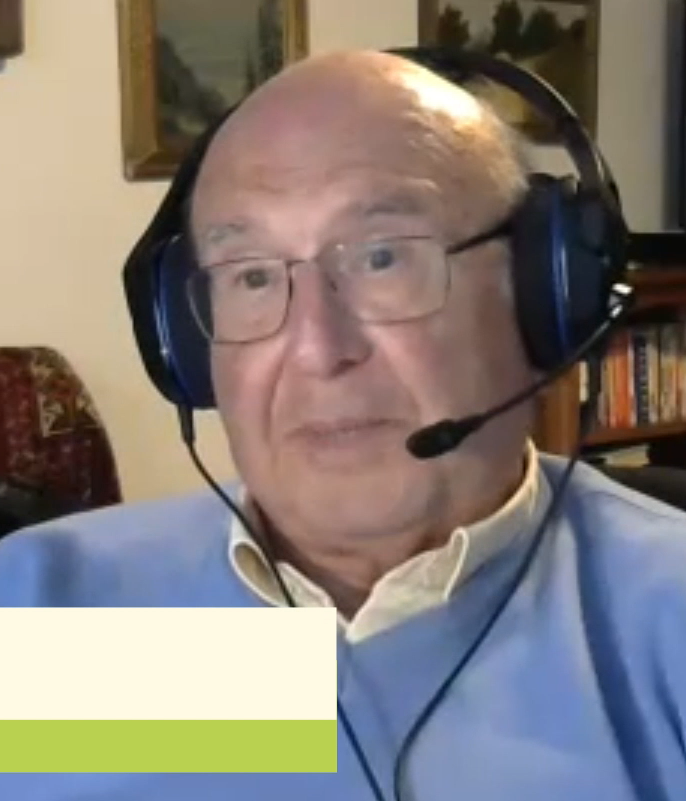
Four Pillars of Wisdom
The Forum has a diverse advisory board made up of prominent stakeholders and professionals working in the circular bioeconomy from all over the world, including politicians, academics and high-level business leaders. The content of the Forum is arranged into four separate pillars with deeply experienced moderators and panellists from different regions:
Following is an interview Dr Christian Patermann, keynote speaker and moderator of the first panel to take place at the Forum in Belém; The BioEconomy: People, Planet, Policies. Dr Patermann is widely known as the “Father” of European bioeconomy, and is former director at the EU Commission and advisor to the German government on bioeconomy matters.
From a political perspective, can you give us your view on the importance of a circular bioeconomy for the future of the planet?
Dr Patermann: Since the warnings of the Club of Rome half a century ago our planet and we all as its tenants face a growing number of planetary challenges, needless to enumerate: more recently the pandemic and a strong increase in extreme weather events. But mankind has a toolbox of responses available: sustainability to be more categorically practiced as ever before, with a new “old” Economy -model” in its centre, namely the stronger practice of the principles of biology, like renewability and circularity, coupled with an increased use of biological resources, like plants, animals, microorganisms (bacteria, enzymes, proteins etc.) and insects: in one word the “biobased” economy.
It will be one of the most challenging tasks for politicians and for their policies to use this political business model as much as possible to enable the transition into a less-fossil, close-to zero waste , circular , planetary healthy world society.
Great words, great ideas, but very ambitious to be realized. To do this within the larger context of a sustainable future I see as the prime task for policy deciders worldwide.
When it comes to overall strategies in regards to the global bioeconomy and the subjects of People, Planet and Policies, how far have we come and what further work is there to do?
Dr Patermann: Today we see in spite of constraints by the pandemic an ever-growing number of states, regions and international entities to support the development of a bioeconomy via relevant national and regional strategies. In particular in Latin America this development is lately really remarkable: Costa Rica, Uruguay, Colombia, Brazil. But paper is patient as we say in Germany: if these strategies are not accompanied by accountable action plans, road maps or other monitoring instruments, if they are not implemented by concrete projects or processes, their political value and impact will be very limited.
These concrete cases are the more necessary as the format of a biobased economy needs permanently to demonstrate its better performance compared with other non-biobased products and processes. Just the accompanying determination and qualification to be circular and biobased will in many cases not be sufficient! This is a common challenge to industry, academia, to communication and marketing experts as well. Thus a lot to do but fort a very worthwhile cause!
As an advisory board member of the Forum moderating the first panel in Brazil, what will be the main focus of the discussion?
Dr Patermann: There is already a certain “tradition ” in this panel to present and discuss the most recent strategies – national and regional – from all parts of the world. However, based on a few expectations from the audience, we will be discussing the following: exchange of most recent experiences of how to produce and publish a politically successful bioeconomy strategy, AND, at least as important, follow the most recent development of the content of such a national or regional strategy.
We will also be asking questions, for instance: what role is Health, Digitalisation and Biodiversity playing today in the scope of an increased use of biological resources. The regional divergencies within the priorities-settings are remarkable, but more and more topics, qualified as soft skills within the bioeconomy are becoming relevant: new ways of academic and vocational training, new ways of funding, mobilizing private capital in the post Covid period stronger than before.
I expect this time in addition to be hearing new interesting information in these areas demonstrating the enormous dynamisms of bioeconomies worldwide. Learning more about the developments in Latin America, in particular the widely unknown ” continental ” Amazonia, and I expect – for the first time ever – that the role of tropical forests within the bioeconomy is made prominently known, also covering other regions like central Africa or Indonesia. These are additional features to follow developments also in close partnership with academia and industry.
I am already curious to learn what topics we will be discussing in our 2022 annual gathering!